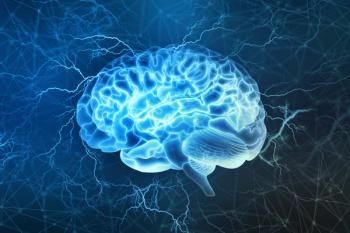
- Vol 36 No 3
- Volume 36
- Issue 3
Role of infectious disease in mental illness development
Infections and how they are treated early in life may impact how mental health disorders develop early on, according to a new report, highlighting the need for a better understanding of the mind/body connection.
The etiology of mental illness has long been a question answered by many theories, but now researchers in Denmark have found a connection between infections and the development of disorders including schizophrenia, depression, and bipolar disorder.
Previous studies have linked severe infections requiring hospitalization to mental illness in adults. The impact of infection on the central nervous system, specifically through immune activation, changes the microbiome and inflammatory mediators, according to the report. The goal of this most recent study was to expand on previous research and explore a variety of types and severity of infections and a possible relationship to mental health disorders. To achieve this goal, researchers investigated hospitalization and prescription data on more than 1 million children born in Denmark between 1995 and 2012 using 2 national registries.
The data revealed that infections requiring hospitalizations were associated with an 84% increased risk of a mental health disorder diagnosis in the hospital setting and a 42% increased risk in the use of psychotropic medications. On the other hand, infections treated primarily in the outpatient setting with anti-infective agents were associated with a 40% increased risk of a mental health disorder diagnosis and a 22% increased risk in the use of psychotropic medications.
“These risks increased in a dose-response association with the number of infections and the temporal proximity of the last infection, and were supported by analyses that included different reference groups and sibling analyses,” the report notes. “A detailed assessment showed that the risks differed among specific mental disorders, being most elevated for obsessive-compulsive disorder, mental retardation, and tic disorders.”
Previous studies were limited to hospitalizations for severe infections and the impact on later mental illness diagnoses, but excluded outpatient and less severe infections, the research team pointed out.
“To our knowledge, the present study is the first to indicate that any treated infection, including less severe infection, is associated with an increased risk of a wide range of childhood and adolescent mental disorders,” the team says.
New connections between infection and mental illness
There are several theories as to why infections may lead to a later diagnosis of mental illness, according to the report. The first is that infection may influence the brain, with infective agents crossing the blood-brain barrier, therefore altering the central nervous system. This theory, according to the researchers, is supported by the team’s finding that the risk of developing a mental health disorder increased with the amount and severity of treated infections. A second theory is that anti-infective agents may influence the microbiome of the gut, disturbing microflora and altering the brain via the vagus nerve, resulting in alterations in the blood-brain barrier. A third theory presented in the report is an association between mental disorders and genetic immunity problems, with some patients having an increased genetic susceptibility to infections that could then open the door to mental health disorder development.
The research team suggests that these findings support the need for more research on the role of infections and antimicrobial therapy in the pathogenesis of mental disorders, and possibly the development of new prevention and treatment strategies.
Ole Köhler-Forsberg, MD, a PhD student in the Department of Clinical Medicine at Aarhus University, Denmark, led the team and says that the study highlights more than ever the connection between the brain and body.
“We hope that our findings will contribute and help to a better understanding of the complex interplay between the peripheral immune system and the central nervous system. Clearly, the central nervous system is linked to the rest of the body in an intimate connection,” Köhler-Forsberg says. “Furthermore, we hope that our findings will help that more focus is on a broad and detailed somatic evaluation of children and adolescents with mental disorders. Some mental health problems may be caused by infectious agents, but in addition it is important to treat somatic diseases among patients with mental disorder, as sufficient somatic treatment may have a positive impact on the mental disorder as well.”
Articles in this issue
almost 7 years ago
Riddle me this: Depression, suicide, and the screening imperativealmost 7 years ago
What to do if you get sued for malpracticealmost 7 years ago
How to diagnose and treat severe asthmaalmost 7 years ago
Feel more comfortable about recommending HPV vaccinealmost 7 years ago
Painful, tense acral bullae in a 12-year-old girlalmost 7 years ago
Supplements for sadness: Safe or senseless?almost 7 years ago
Congenital upper limb deficiency: A case reportalmost 7 years ago
7 ways to involve parents in carealmost 7 years ago
Fish oil supplements not a fix for obese patients with asthmaalmost 7 years ago
Teenager with ankle pain and swellingNewsletter
Access practical, evidence-based guidance to support better care for our youngest patients. Join our email list for the latest clinical updates.








